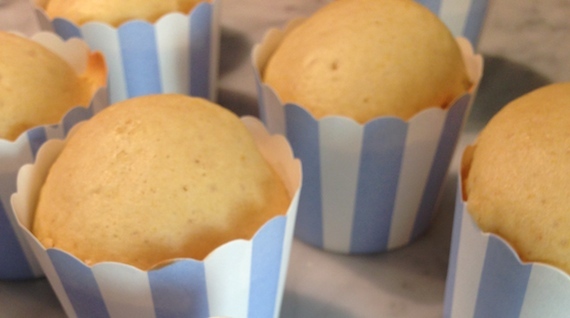"You don't want to be that parent," I've been warned. "The whistleblower."
I do not. But I need to be, because having cupcakes and other treats regularly in the classroom is a serious threat to my daughter and her millions of peers with food allergies.
What's the big deal, you might wonder, as long as those allergic kids are not fed the treats or cupcakes?
Consider if 10 percent of kids in a classroom were severely physically handicapped, but all the other students, almost once a week, got to enjoy some impromptu, fun movement exercise, like a random dance party that had nothing to do with the curriculum, which those handicapped kids could not participate in.
We would have to wonder, as educators, as parents, and as a society, how these children would feel, if we did this, and how this might affect and inform their overall educational experience in the worst way.
Now consider if instead nearly 10 percent of children in a classroom suffered from serious sensory issues, such as strong sensitivity to flashing lights and loud music, which would be emotionally distressing to them. Would we consider it appropriate to hold weekly impromptu sensory-exploding parties for the other kids, which had nothing to do with their education or curriculum, and force the students with sensory issues to watch and listen, and suffer severe anxiety and emotional distress?
I would like to think not.
Especially not if this celebration or activity could potentially cause their throats to close, and their hearts to stop beating, if they did participate.
Though this is never discussed in this light, the unfortunate reality is that this sort of thing does happen, about 25 times a school year, in almost every classroom across this country today. As the parent of a kindergartener with life-threatening food allergies I am alarmed to find that children's birthdays aren't only celebrated at home and at parties outside school anymore, but also again in the classroom, usually with cupcakes or some type of treat that is unsafe and potentially life-threatening to close to 10 percent of the children in the room.
Every time a parent brings in cupcakes to celebrate their child's birthday (or for fun, on some holiday like Halloween, Christmas or Valentine's Day), the allergic students have to sit aside and watch their peers, in their own classroom, delight in some special treat which they cannot share, and which can potentially kill them, quickly. And though allergic kids deal with the emotional pain and fear of this disease constantly -- at parties, at play dates, and in the school lunchroom -- now, because cupcakes and random treats are a norm in classrooms, they suffer and fear for their safety there as well. In the classroom: The place where all children deserve and need to feel safe, included, and accepted in order to thrive.
Kids with food allergies often suffer from increased levels of anxiety, shame and fear, and having frequent celebrations in their classrooms with food can only compound this issue. But it also leads to other issues as well. Teachers and staff must take extra time and care, after these cupcakes are eaten, to wipe down tables and hands so that allergic kids won't touch some frosting later, by accident, for example. The staff also needs to watch those allergic kids closely after such celebrations for reactions, in case something did get touched. Teachers might even need to take time to try to console those sad, isolated and scared allergic students, sometimes, especially if there is a reaction. Significant time, overall, is taken away from learning, and from sharing a safe, cohesive classroom experience -- from developing the social skills that schools should be fostering, at all times, such as thoughtfulness, inclusiveness and mindfulness.
We cannot overlook either what is being taught to non-allergic kids, when cupcakes are brought in for their birthdays: That it's acceptable to have friends and peers be isolated and feel scared, sad and shamed, if it means one more chance for them to enjoy a birthday treat with whatever peers or friends can celebrate. Surely, this is not the goal.
If something or someone needs to be celebrated in a class, and to merit time taken away from learning, for some reason, this can and should be done in a way that is inclusive, and safe, for each student to participate in. Certainly, in a way that does not put millions of students' lives in peril, or distress them emotionally, for the amusement of others. No student deserves that.
 Like Us On Facebook |
Like Us On Facebook |
 Follow Us On Twitter |
Follow Us On Twitter |
![]() Contact HuffPost Parents
Contact HuffPost Parents

